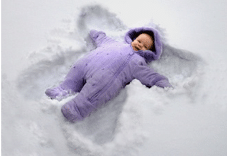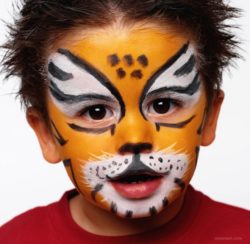Bedwetting, also known as nocturnal enuresis, is often asked about in whispers, as an aside, or in the hallway away from the child. Embarrassment is the concern of course, but bedwetting is common and a normal part of growing up for many children. I tend to shed light on the subject with the child present to normalize the issue and help them see that there is nothing to be ashamed of.
Children potty train between the ages of 18 months and 4 years. Whether your child is an early or later potty trainer, nighttime dryness may come immediately or follow after some weeks, months or even years. Over 80% of children are dry at night soon after daytime training though and the issue of bedwetting is resolved by age four, but even older kids who are later to train may not have anything wrong with them.
Most of the time bedwetting is normal. Sixteen percent of kindergarteners, 10% of fifth graders, and even 1% of high school freshmen, will wet the bed at least one night of the week. Even though bedwetting is common, it is occasionally a sign of a more serious medical issue. For this reason, it’s important to see your pediatrician to discuss bedwetting.
Here are a few clues that your child’s problem could indicate something more serious is going on:
- She drinks a lot of fluid, especially if she gets up at night to drink.
- She eats a lot of food but isn’t gaining weight.
- He has lost several pounds recently without trying.
- He is having daytime accidents too.
- She reports pain with urination.
- He is going to the bathroom a lot more frequently during the day.
- She seems very anxious all of a sudden.
- He reports that he is afraid to go to school (or another specific location).
- Bedwetting or daytime wetting is very new. He used to be dry at night for a long time and now is having trouble.
- He is having hard or infrequent poops.
- She snores like a freight train.
Assuming your child potty trained at the usual time and has had bedwetting ever since, without regular daytime symptoms, the following bedwetting FAQs are for you!
My 7-year-old wets the bed every night. His 4-year-old brother is already dry all night! Is he just being lazy?
Bedwetting isn’t due to laziness. Kids aren’t choosing to wet the bed, staying in bed when they feel the urge to go instead of getting up. They are legitimately not wired yet in a way to feel the urge when they are asleep. Everyone develops at different rates and your 7-year old’s nervous system isn’t ready yet even though your younger child’s is.
Should I get my child up and take her to the bathroom when I go to bed? Will that help her stay dry all night?
It may help her stay dry, but it won’t help her learn to feel the urge to go to the bathroom when her bladder feels full. Data suggests that children who are awoken by parents don’t achieve night dryness earlier. The recommendation is not to do this.
When can I expect my child to outgrow this?
If you have a family history of bedwetting in any relative, the age at which they outgrew it is often a good estimate of when your child will outgrow it too. If not, you will start to see the frequency decrease as your child outgrows it.
What can I do to help my son train at night before trying a bed alarm?
Sugar, caffeine and fluids can all play a role. So can behavior modification strategies. When you feel your son is old enough to be motivated to work on this issue do the following:
- Put a protective covering on his mattress and a spare set of sheets near the bed at night.
- Adjust his fluid intake so he overall takes less and the amount is divided as such: 40% from 7 a.m. to Noon, 40% from Noon to 5 p.m., and only 20% after 5 p.m. For a child drinking 20 ounces per day, that works out to 8, 8, and 4 ounces. Or 9, 9, and 5 if taking 24 ounces per day.
- No caffeine or sugar after 5 p.m. during the training phase because they increase urine output.
- Urinate at least four times between 5 p.m. and bedtime, going twice in the half hour before bed.
- Wear underwear to bed.
- Have the child responsible for changing PJs and sheets at night. (You can assist a bit but mostly his job.)
- Earn stars/rewards for waking at night if any pee in the toilet or to change the sheets at first.
How long does the training take?
Give the above training three or four weeks and if you haven’t made progress, set it aside for a while.
What about bed alarms?
Bed alarms are very effective at reducing bedwetting and are most successful in children 8 and older. Bed alarms have a sensor that detects moisture and awakens the child through either loud noise or vibration. It often needs to awaken the parent too at first since children are often deep sleepers. Like the strategy above, the child wears underwear, gets rewards, and changes sheets, but is stirred awake when wetness starts. This encourages an association between that wetness and the need to wake up. Bed alarms are the best next step when the first approach doesn’t work.
I’ve heard about medications for bed wetting too. Can’t I just use those?
Desmopressin is a good choice sometimes. It is a medicine that essentially tells the kidney to make dramatically less urine for the night. Although it can be used long term, because it effects the kidney itself and bedwetting in most cases is not due to a medical issue, I tend to only recommend this for things like sleepovers or camp. Don’t plan to come in the day before camp have your appointment to get the prescription. This medication doesn’t always work! It’s best to do a trial run long before camp and make sure your child responds well.
Can I address bedwetting at my usual wellness visit?
I recommend a separate appointment for this issue. We usually need a urine sample along with a more detailed history. When it’s simple, straightforward bedwetting it’s easy, but if it isn’t straightforward, we won’t have the time needed to talk about that along with the other important issues at the wellness visit.
What causes bedwetting?
I left this one for last because it is the hardest to answer. The best answer is probably that the nervous system is still immature. As a result, sleep cycles are a little off causing difficulty in sensing the urge to urinate during the night. As the brain matures and sleep cycles regulate, night dryness resolves.













